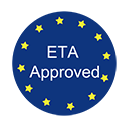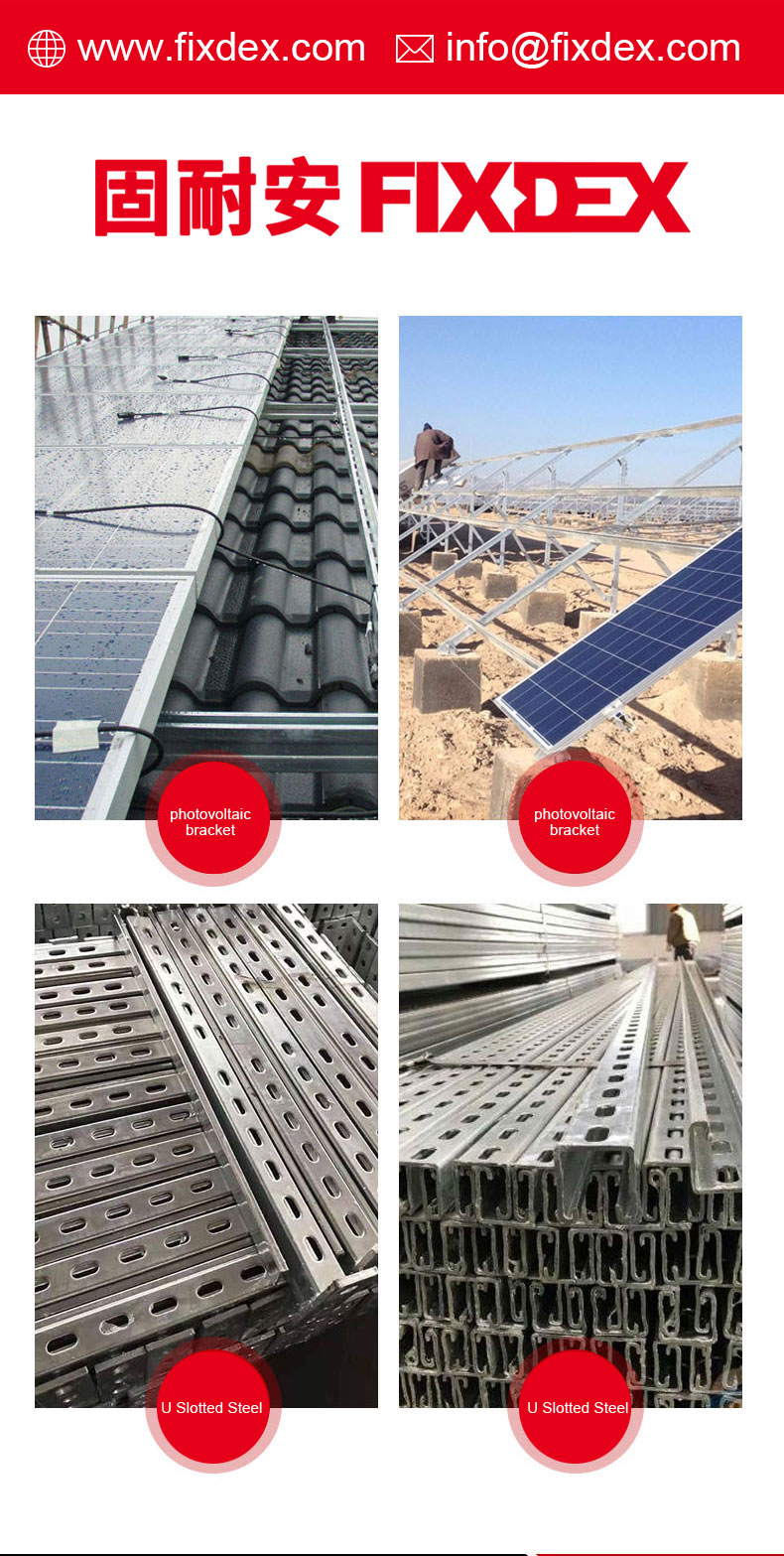1. The General Administration of Customs has implemented measures such as relaxing the time limit for deep processing carryover declarations in processing trade. (Through Bolt product)
The General Administration of Customs issued the “Announcement on the Implementation of Measures to Relax the Time Limit for Deep Processing Carryover Declaration in Processing Trade”, which states that if a centralized declaration method is used to handle deep processing carryover business, enterprises should verify and annotate the deep processing carryover list of the previous month before the end of each month. and customs declaration forms for centralized declaration.
Full text of the link:
http://www.customs.gov.cn/customs/302249/2480148/5494187/index.html
2. New 3C certification pilot policy for imported information technology equipment . (Ss Threaded Bar)
The State Administration for Market Regulation and the General Administration of Customs recently issued an announcement deciding to implement compulsory product certification (CCC certification) for imported information technology equipment from pilot areas (scope of application: Shanghai, Guangdong, Tianjin, Fujian, Beijing Pilot Free Trade Zone and Hainan Free Trade Port) Request adjustments. For information technology equipment within the scope of CCC certification imported in pilot areas, the certification client can use a self-declaration evaluation method to prove that the product complies with the electromagnetic compatibility standards of CCC certification when applying for CCC certification.
Original announcement:
https://www.cnca.gov.cn/zwxx/gg/lhfb/art/2023/art_8e57674ae0e64258a3ef8f9679cfa1ee.html
3. Cancellation of registration matters for enterprises applying for certificate of origin with the Council for the Promotion of International Trade (Anchor Fastener Chemical)
In order to implement the national foreign economic and trade policies, further optimize the business environment, and promote the high-quality development of foreign trade, starting from November 1, 2023, the China Council for the Promotion of International Trade and its local visa agencies will cancel the registration and filing matters for enterprises in the country of origin, and new companies will apply for the China Council for the Promotion of International Trade The Certificate of Origin should be submitted with a Declaration (China Council for the Promotion of International Trade Origin Declaration Submission Process.docx). The specific arrangements are as follows:
1. For enterprises that have completed the registration of foreign trade operators, the “two certificates in one” registration method will remain unchanged. Enterprises can directly use the unified social credit code to log in to the China Council for the Promotion of International Trade Certificate of Origin online visa system and apply for a certificate of origin without submitting a “Declaration”.
2. For enterprises that have not completed the foreign trade operator registration and have not registered the origin enterprise with the China Council for the Promotion of International Trade, they should submit a complete and accurate “Declaration” (statement.docx) to the origin visa agency of the China Council for the Promotion of International Trade before applying for a certificate of origin. ) and relevant supporting materials, you can apply for a CCPIT certificate of origin.
4. China announces unilateral visa exemption for 6 countries (Stainless Steel Self Tapping Screws factory)
On November 24, Foreign Ministry spokesperson Mao Ning announced that China has decided to trial the expansion of the scope of unilateral visa-free countries and implement a unilateral visa-free policy for ordinary passport holders from six countries: France, Germany, Italy, the Netherlands, Spain, and Malaysia. From December 1, 2023 to November 30, 2024, ordinary passport holders from the above countries who come to China for business, tourism, visiting relatives and friends, and transit for no more than 15 days can enter China without a visa.
5. The central banks of China and Saudi Arabia signed a bilateral currency swap agreement (Drop In Wedge Anchor)
With the approval of the State Council, the People’s Bank of China and the Central Bank of Saudi Arabia recently signed a bilateral local currency swap agreement. The swap scale is 50 billion yuan/26 billion Saudi riyals. The agreement is valid for three years and can be extended with the consent of both parties. The central bank said that the establishment of a bilateral currency swap arrangement between China and Saudi Arabia will help strengthen financial cooperation between the two countries, expand the use of local currencies between China and Saudi Arabia, and promote trade and investment facilitation between the two sides.
6. The EU passes new regulations to allow those planning to travel to the Schengen area to apply for a visa online (J Bolt M10)
On November 13, local time, the European Council approved new regulations related to the digitization of Schengen visas and created a unified Schengen visa online application platform, thereby making the future Schengen visa application process more convenient.
The European Council said in a statement issued on the same day that according to the new regulations, the EU will create a unified Schengen visa online application platform. With few exceptions, Schengen visa applicants will no longer need to visit a Schengen country embassy or consulate, but will instead apply through the digital platform. The European Commission has previously stated that the platform is expected to start development in 2024 and be put into use in 2026. Visa applicants will enter all relevant information on the platform, upload electronic copies of travel documents and supporting documents, and pay visa fees. At the same time, the current visa sticker will be replaced by a cryptographically signed barcode.
It is reported that the new regulations will take effect on the 20th day after they are published in the Official Journal of the European Union. The specific implementation date will be determined after the technical work of the online visa platform and digital visas is completed.
7. India revise some standards for medical instruments and electrical products(Hex Cap Screw)
The Bureau of Indian Standards (BIS) issued a communiqué announcing the revision of some medical device and electrical product standards. The revised standards will be officially implemented on October 2, 2023, and the previous implementation standards will be gradually abolished.
8. India decides to impose anti-dumping duties on tempered glass used in Chinese home appliances(halfen channel)
On November 17, 2023, the Indian Ministry of Finance and Revenue Bureau issued notification No. 17/2023-Customs (ADD), stating that it would accept the Indian Ministry of Commerce and Industry’s regulations on August 28, 2023 for products originating or imported from China with a thickness of 1.8 mm. A final affirmative anti-dumping recommendation was made on Toughened Glass for home appliances having thickness between 1.8 MM to 8 MM and area of 0.4 SqM or less, and the decision was made to China’s products involved in the case are subject to anti-dumping duties for a period of five years, with the tax amount ranging from US$0 to US$243/ton (for details of the tax, please see the final announcement of this case). The Indian customs codes of the products involved are 70071900, 70072900, 70134900, 70139900, 70199000, 70200019, 70200029 and 70200090. The following products are not subject to the anti-dumping measures in this case: tempered glass used for glass covers of vessels, tempered glass used for electronic switches and switch plate panels, curved colored glass used for washing machines, used for double-glazed windows (DGU) Tempered glass, dome-shaped tempered glass, fluted tempered glass.
9. Indonesia imposes additional import taxes on bicycles, watches and cosmetics(Buy Wholesale stub pin)
Indonesia imposes additional import taxes on four categories of goods through Regulation No. 96/2023 of the Ministry of Finance on Customs, Excise and Tax Regulations for the Import and Export of Consignment Goods. Cosmetics, bicycles, watches and steel products have been subject to additional import tariffs from October 17, 2023. New tariffs on cosmetics are 10% to 15%; new tariffs on bicycles are 25% to 40%; new tariffs on watches are 10%; and new tariffs on steel products can be up to 20%.
The new regulations also require e-commerce companies and online suppliers to share imported goods information with the General Administration of Customs, including the names of companies and sellers, as well as the categories, specifications and quantities of imported goods.
The new tariffs are in addition to the Trade Ministry’s tariff regulations in the first half of the year, when import taxes of up to 30% were imposed on three categories of goods: footwear, textiles and handbags.
10. Thailand imposes anti-dumping duties on Wuxi steel plates and tin-plated steel plates related to China(Double Threaded Bar)
On October 25, 2023, the city of New York in the 1990s, the first of its kind in the world, was the first of its kind和欧盟的无锡钢板(泰语: สินค้าเหล็กแผ่นชุบหรือเคลือบด วยโครเมียมทั้งชนิดเปม้วนและไม่เป็น Steel, Tin Free Steel (Tin Free Steel) is a high-performance material, the CIF (CIF) is a high-performance, high-performance product4.5 3%~24.73%, 3.95%~17.06%, 18.52% (expensive quotation marks). Entertainment) is posted in 2023 on 11/13/2
On October 25, 2023, the city of New York City in the 1990s, the city of New York City, the city of New York City. Thanks for reading the snowflakes and the snowflakes in the woods (Raising: เหล็กแผ่นชุบหรือเคล ือบด้วยดีบุกทั้ง Steel Sheets Plated or Coated with Tin in both Coils and Non Coils )The inflation rate of the CIF is 2.45%~17.46%. The upside down ratio is 4.28%=20.45%, the upside down is 5.82%, the upside down is 8.71%~22.67%. Updated 2023 on 11/13/2
11.Thailand issues labeling requirements for personal computers and computer equipment(halfen anchors)
Recently, Thailand’s Office of Consumer Protection Board (OCPB) issued a statement titled “Personal computers and computer equipment are label-controlled commodities.”
This statement applies to computers and computer equipment, stipulating that their labels must reflect specific information required by consumer protection laws and be clearly displayed in Thai or a foreign language with Thai annotations to avoid any misunderstanding by consumers. However, products that are manufactured in Thailand and then exported but not sold in Thailand are not within the scope of this labeling requirement.
This statement will be effective from November 1, 2023.
12. Philippines cuts gypsum import tariffs(Installing Concrete Wedge Anchors)
Philippine Civil Service Secretary Bosamin signed Executive Order No. 46 on November 3 to temporarily reduce import tariffs on natural gypsum and anhydrous gypsum to zero to support housing and infrastructure projects and boost competition in the local gypsum and cement industries. The preferential tariff rate is valid for five years.
13. Myanmar requires food importers to provide mandatory import health certificates(8.8 Threaded Bar)
The Global New Light of Myanmar reported that the FDA under the Myanmar Ministry of Health notified food importers to seek mandatory import health certificates (IHC). IHC applications can be made online or in writing at various border checkpoints or at the FDA offices in Yangon and Naypyitaw. Import companies holding an import recommendation letter can register an account through (http://esubmission.fda.gov.mm/) and provide the OGA number issued by the customs.
To apply for IHC, you need to provide an import recommendation letter (IR), certificate of analysis (CoA), bill of lading, invoice, packing list, issuance order, import license from the Trade Department, and photos of imported food. The application must be accompanied by an online payment receipt of the service fee of 50,000 kyats and each laboratory service fee of 200,000 kyats.
When applying for IHC, samples must be sent to the FDA offices in Lashio District, Naypyitaw, Muse District, Tachileik, Yangon and Myawaddy border. Customs clearance can only be carried out in the presence of IHC. For imported foods with low and medium health risks, the processing time is 7 working days, and for imported foods with higher health risks, the processing time is 21 days.
Post time: Dec-06-2023


